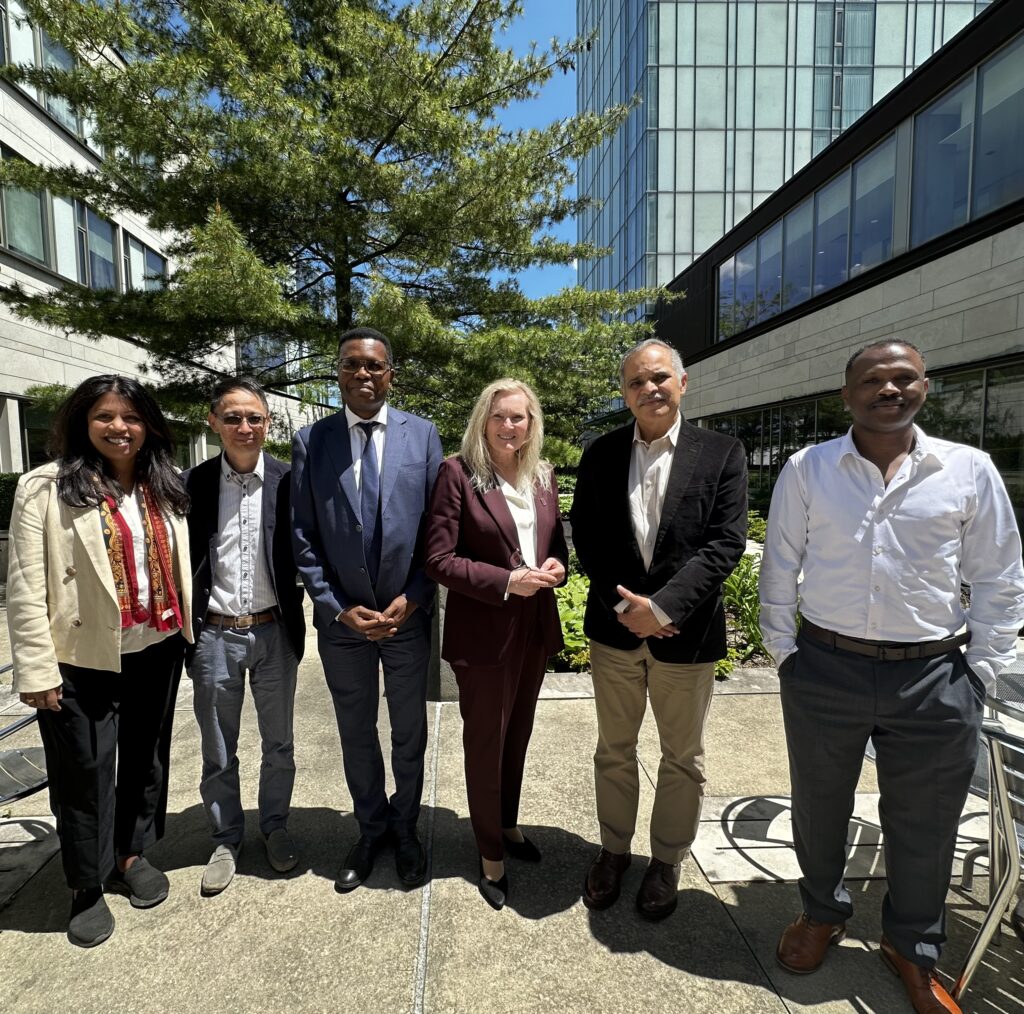By Elaine Smith
The York Emergency Mitigation, Engagement, Response & Governance Institute (Y-EMERGE) has established a partnership with the Research & Innovation Centre at the African Institute for Mathematical Sciences (AIMS-RIC) in Rwanda that will bring AIMS PhD students to York University to pursue their research in mathematical modelling as a tool for addressing climate change.
The project, called Human Capacity Building in Climate Change and Health in Africa, is being jointly funded by York International (YI) and Global Affairs Canada’s Canadian International Development Scholarships 2030 program, marking the first external grant to Y-EMERGE. It is also the first time York International has matched funds on this scale in support of an international research endeavour.
“York International is delighted that our researchers were able to leverage C$25,000 in matching funds to secure a significantly larger external grant for an impactful international research collaboration,” said Vinitha Gengatharan, assistant vice-president of global engagement at YI. “The money will be used to top up scholarships for up to six female PhD students coming to York, as well as to provide emergency bursaries for any PhD student travelling to York for this program.”
As part of the project, 10 PhD students from the AIMS Research & Innovation Centre will each spend a year at York between 2025 and 2028 to advance their work with mathematical modelling and climate change. Y-EMERGE will be hosting the program, with York International assisting in helping the students to feel at home. Participating students will have the opportunity to develop their research by working with experts in their areas of interest.

AIMS is no stranger to York U; the institutions have previously collaborated on infectious disease modelling for influenza and COVID-19.
For Professor Jude Kong, founder and director of the University’s Africa-Canada Artificial Intelligence & Data Innovation Consortium (ACADIC) and a native of Cameroon, this collaboration is a passion project. He believes a focus on climate change and health is imperative, as the African continent is already feeling the effects of climate change.
“We’ll take the modelling experience present at York’s Y-EMERGE, as well as ACADIC and AIMS, to ensure we build the capacity to model climate change in Africa,” said Kong. “Climate change is coming and the situation is worsening in Africa. It will affect health in a way that has never happened before, and we’ll be able to build responsible models with an understanding of the local dynamics. … We’ll be using local expertise, so the results will be locally relevant, decolonized and intersectional.”
Professor Jianhong Wu, director of Y-EMERGE, is equally committed to the project.
“We consider this to not just be the beginning of an intensive collaboration with the AIMS Research & Innovation Centre in particular, but AIMS in general,” he said.
Professor Wilfred Ndifon, president of the AIMS Research & Innovation Centre, added, “For us at the institutional level, we have achieved our successes thanks to partnerships like the one we have with York.”
To help facilitate this long-term partnership, Y-EMERGE is forming a college of mentors to work with the AIMS students and establishing an advisory board to guide the growing Africa-Canada collaboration in mathematical modelling.
“We want the students to not only get excellent training but to grow their careers and begin to build up their own networks,” Wu said. “The students who come to York to train will be ambassadors for collaboration between the African continent and Canada in mathematical sciences.”
Kong is excited by the opportunity to build capacity on his home continent through a “train-the-trainers” model.
“When these students return home, they will be sent to other AIMS centres to make data actionable,” he said. “We need homegrown talent, rather than people from the Global North, to teach others [in Africa]. York is one of the many institutions that have reached out to help AIMS change the paradigm, and it is committing funding because they don’t view this as a one-off.”


